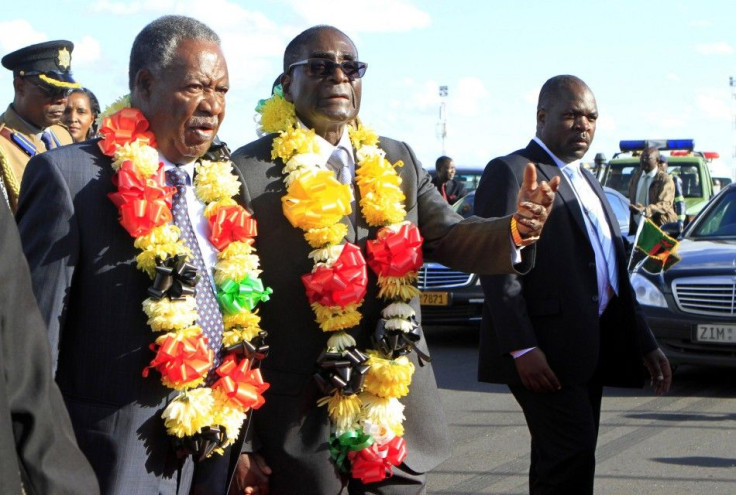Zimbabwe Holds World Trade Expo, But Russia And India Boycott

Zimbabwe is hosting its 53rd International Trade Fair (ZITF) this week in Bulawayo -- one of Africa's largest world-trade expos. About 468 exhibitors and 37 foreign companies have set up displays in this huge enterprise.
ZITF is a global expo designed to provide a platform for companies, investors, and local and foreign businesses that represent nearly every sector -- from the arts, to the auto industry, to agriculture -- to come together, share practices, and establish partnerships. The goal is to bring together supply and demand and to boost interest in Sub-Saharan African industries.
Zimbabwe and neighboring African nations hope this trade fair will help them become more competitive on both a local and international level.
For instance, Michael Sata, the President of Zimbabwe's northern neighbor, Zambia, gave the opening address this year at the expo and highlighted the importance of intra-regional collaboration.
He said, Allow me to challenge companies here present to be more innovative and facilitate advancements that will enhance quality products for various markets, he said according to a Zimbabwe Broadcasting Corporation report.
Sata added that this collaboration could likely lead to increased food security throughout the globe: Our two nations [Zambia and Zimbabwe] are endowed with fertile soil and have the capability to be breadbaskets of Africa and the world. It is therefore imperative to address challenges in the agricultural sector. We need also to explore and incorporate new technologies for our products to compete regionally and internationally.
South Africa, a country that sent 32 businesses to the fair this year, also was confident that regional collaboration would help boost not only Zimbabwe's economy, but also all of Africa's.
Additionally, another important goal of the fair, reaping globally, implies that not only regional companies and investors would benefit from attending - but also businesses from all over the world.
Of the 37 foreign countries in attendance, China in particular jumped on this opportunity -- Chinese companies represent nearly 90 percent of participants.
However, some important nations have refused to participate this year as a way of protesting Zimbabwe's controversial policies of seizing ownership of certain foreign businesses.
A conflict of interests between foreign companies and Zimbabwe's government has created many barriers to collaboration and it will take more than a world trade fair to mend relations between Zimbabwe and much of the world beyond Africa.
For instance, India and Russia (one half of BRIC) have chosen to boycott the fair altogether this year to protest Zimbabwe President Robert Mugabe's recent decisions to seize control of a majority ownership of foreign mining companies that had not allocated enough stakes to black shareholders. The state also introduced a controversial indigenization policy that included land seizure from foreign companies.
The U.S. and the U.K. did not participate this year either -- although that did not come as a surprise, since they have had particularly bitter relations with Zimbabwe over human rights abuses for years and consequently imposed sanctions.
Zimbabwe's principal trading partners are South Africa and China.
© Copyright IBTimes 2024. All rights reserved.





















